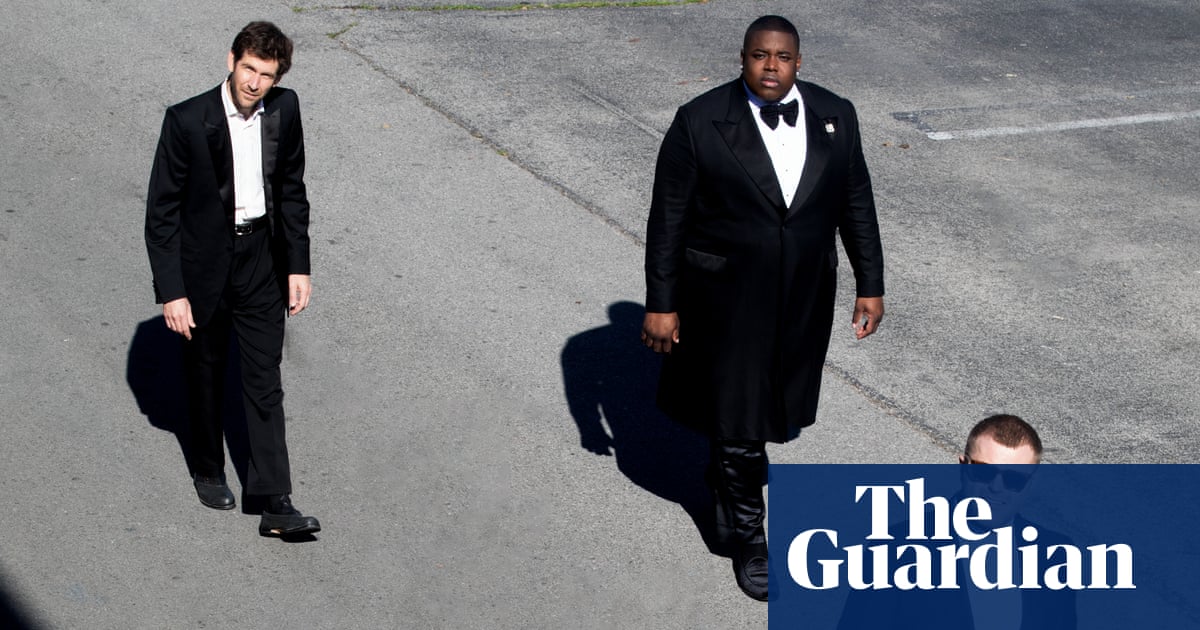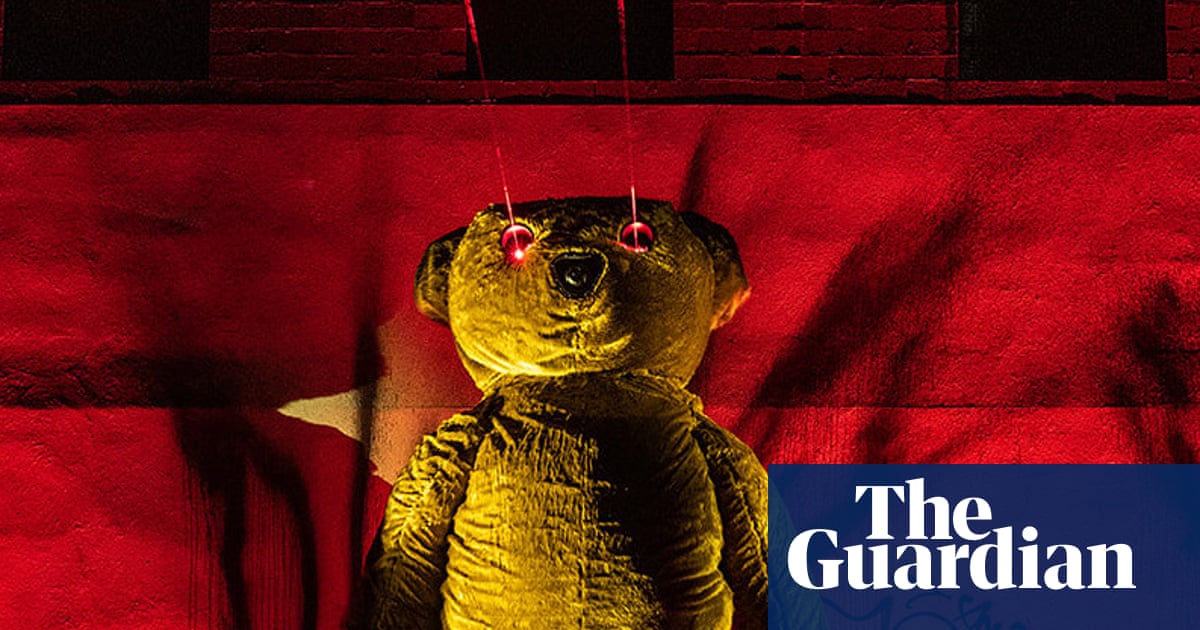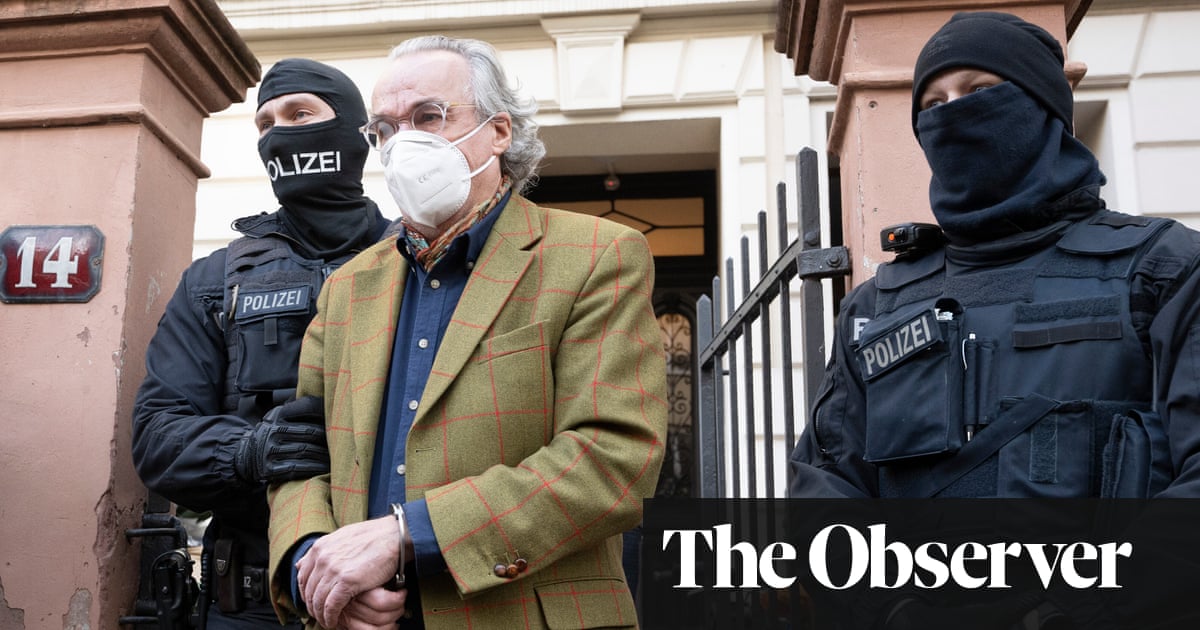
here’s nothing political about these shows, nothing really edgy in there.” Far from a criticism, Henry Shields, the co-founder of the Mischief Theatre Company that is behind the Goes Wrong Show franchise, is expounding on how a theatre company set up in 2008 by a group of drama school friends has gone on to produce sell-out runs in the West End and on Broadway, as well as a hit BBC TV show and a forthcoming second Christmas special.
Taking their cues from a particularly British style of 60s slapstick comedy made popular by the likes of Monty Python, Fawlty Towers and Morecambe and Wise, the Mischief shows are centred around the conceit of things going wrong on stage: actors bringing in the wrong props, failing to open doors or simply falling over. It is a misleadingly simple premise and one that has won them a legion of fans.
“We just try and be as funny as we possibly can and write pieces that are devoid of cynicism,” says the director and co-founder Jonathan Sayer. “That is how we’ve landed on shows that the whole family can come to. The idea of things going wrong is a universal experience that people can tap into; everyone can empathise with these characters and it creates a safe space where you can indulge your meaner instincts by laughing at them.”
Starting out as an improv comedy company when Sayer, Shields and the artistic director Henry Lewis were in their first year of drama school at Lamda, in their initial outing at the Edinburgh fringe the group did shows where performers outnumbered the audience. “Word of mouth was really important for our shows,” Sayer says. “By the time we had written The Play That Goes Wrong, in 2012, we had amassed a loyal following.”
This was the work that catapulted the group into the West End and Broadway, earning them a slot in the 2015 Royal Variety Performance and a long-running residency at the Duchess theatre in London. “The reason people like an improv show is because it’s like watching a person walk across a tightrope,” Sayer says. “They enjoy the wobbles and the bits where the person nearly falls off, not just the safe passage. When we were starting to write together, we wanted to create something that had that same sense of danger and also intimacy.”
The Play That Goes Wrong features the fictitious Cornley Polytechnic Drama Society putting on a performance of a murder mystery that goes – you guessed it – catastrophically wrong, resulting in a climax in which the entire set collapses. On Christmas Day 2019, the Mischief company aired its first television special, reviving the Cornley Drama Society for a festive show featuring a drunken Santa. In his review for the Guardian, Tim Dowling described it as TV that could “wring laughs from just about anyone”, praising its intricate absurdity and hybrid of theatre performance and studio sitcom.
“If there’s a whiff of it looking like it’s contrived, it’s not funny at all,” Lewis says. “The key is making it feel like it’s accidentally happening, which ironically takes an incredible amount of rehearsal and writing, particularly on TV. Ordinarily, in a sitcom, you cut to the funny thing, but with this the cameras shouldn’t be expecting it, so you have to catch the ‘accidents’ in the back of the frame – there’s always two things going on at once.”
Sayer summarises the company’s exhaustive writing process: they put down a rough draft “as quickly as possible” while their ideas are fresh, then redraft as a group of three before having a read-through with their team and redrafting again. Then, they workshop the script with actors, redraft and continue to write as previews of the stage shows are performed, or, in TV, after an initial taping.
“Ninety per cent of writing comedy is rewriting it – to paraphrase Hemingway – so our process is incredibly collaborative and for TV especially condensed,” Sayer says. “We have to treat the camera like it’s the first row of our audience and keep all of the viewers at home laughing and engaged.”
For Shields, the key to their craft is instilling the bide – a French term that refers to the sinking feeling when you realise something is not right. “It is the moment an actor realises they’ve done something wrong and there’s that horrific silence, everyone on stage freezes and nothing happens; they just feel that heartbeat in the pit of their stomach,” he says. “That’s something we take a lot of time to finesse and make sure there’s spaces for it.”
Sometimes things do genuinely go wrong and that bide is authentic, prompting tension rather than the release of laughter. “In Comedy About a Bank Robbery, which we did last year, I had one scene where I had to tell Henry Lewis that we’re making a plan and then I’d come on a few minutes later and tell him to take off his trousers,” Shields says. “I got confused one night and ran on stage and shouted: ‘Take off your trousers,’ first and it didn’t make any sense. Henry was very confused, but I just insisted on it, saying: ‘Take off your trousers,’ again and again – it was horrible and it certainly didn’t get a laugh.”
All of their shows – live or televised – rely on the roar of an audience to highlight each gag. Yet, with the coronavirus pandemic to contend with, the filming of the 2020 Christmas special was in silence. “It was really emotional to be back in a room working with everyone,” Lewis says. “It of course felt strange at times, but it made us all so aware of how lucky we are to be able to do this – even with all the nasal swabbing that now comes with performing comedy.”
Sayer describes how the writing for a show without an audience had to be even more rigorous. “We were constantly looking to anyone on set for their reactions and relying on our instincts.”
Lewis adds: “The first time we perform the show is also the last time, so there’s far less room for tweaking than in the stage shows – we have to be confident in what we’re doing.”
When they will make it back on stage is still unknown, but in the meantime the trio see their role as providing some respite from the stresses of 2020. “With this Christmas special, I would like audiences to have half an hour where they forget about everything and just laugh as a family,” Sayer says. “I feel emotional talking about it, because I’m just longing to see my own family, who don’t live in London. If we can create that sense of community through the show, that would be perfect.”
With The Play That Goes Wrong having returned to the West End – in a socially distanced format – and a second series of The Goes Wrong Show scheduled for next year, Mischief shows no signs of slowing down their accessible brand of comedy. “Audiences are crying out to get together,” Lewis says. “We want to do our part to make that happen.”












